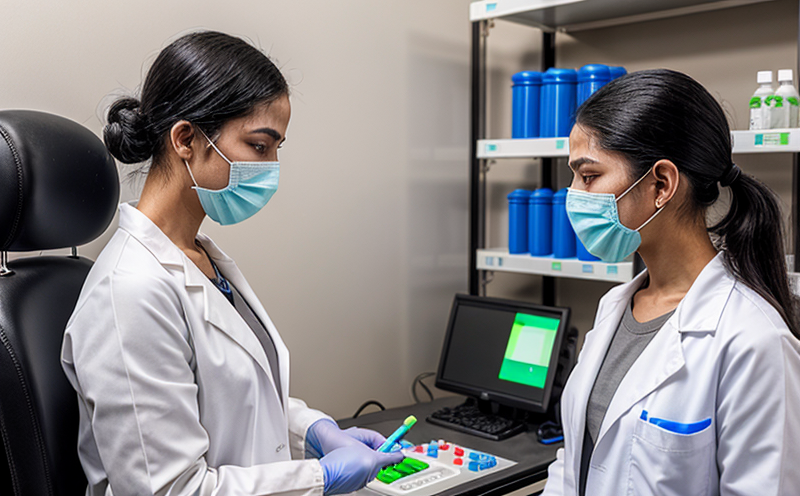In Vitro Gene Mutation Testing using TK Locus
The in vitro gene mutation testing using the thymidine kinase (TK) locus is a critical component of pharmaceutical testing, particularly within genotoxicity, carcinogenicity, and mutagenicity assessments. This method evaluates potential adverse effects on genetic material by examining mutations at the TK gene site.
Thymidine kinase plays a crucial role in nucleotide metabolism; any disruption can lead to significant cellular dysfunction or death. Mutations in this locus are indicative of DNA damage, which is essential for assessing the risk of chemical compounds causing genotoxicity and subsequent carcinogenic effects. This technique has been validated by international standards such as OECD Guideline 487 (In Vitro Mammalian Lymphoma Assay).
The testing process involves exposing mammalian cells to a test substance, followed by monitoring for changes in the TK gene sequence through specific assays. These tests are conducted using various cell lines including Chinese hamster ovary (CHO) and mouse lymphoma cells. The primary focus is on detecting mutations that could lead to cancer development.
Preparing specimens involves several steps: obtaining appropriate cell cultures, ensuring they are healthy and free from contaminants, and then exposing them to the test substance under controlled conditions. Post-exposure, the samples undergo analysis using specialized equipment capable of identifying altered DNA sequences.
The results provide valuable insights into a compound's potential to cause genetic damage, which is vital information for drug development processes. Regulatory bodies worldwide rely on this data when approving new medications, ensuring public health and safety.
Industry Applications
| Application | Description |
|---|---|
| Cancer Research | This technique helps identify compounds that may induce mutations leading to cancer. It aids in the early detection and understanding of carcinogenic mechanisms. |
| Drug Development | Pharmaceutical companies use TK locus testing during preclinical trials to assess new drug candidates' safety profiles, particularly focusing on genotoxic risks. |
| Toxicology Studies | The assay is used in toxicological studies to evaluate the mutagenic potential of chemical substances. This information supports safer product formulations and reduced environmental impact. |
- Pharmaceutical Industry Compliance: Ensuring adherence to regulatory guidelines like OECD 487, EU Mammalian Lymphoma Assay, and FDA standards for genotoxicity testing.
- Biotechnology Research: Identifying mutagenic compounds that might interfere with biotechnological processes such as recombinant DNA technology.
Environmental and Sustainability Contributions
The TK locus gene mutation testing supports sustainable practices by enhancing the development of safer pharmaceuticals. By identifying compounds that pose genotoxic risks early in the research phase, this technique helps reduce the likelihood of environmental contamination from potentially hazardous substances.
Moreover, accurate and reliable mutagenicity assessments contribute to better-informed decisions regarding product formulations, ultimately leading to reduced waste and enhanced resource efficiency within manufacturing processes. This aligns with broader sustainability goals by promoting responsible use of materials and minimizing adverse impacts on ecosystems.
Competitive Advantage and Market Impact
Early identification of genotoxic compounds through TK locus testing provides a competitive edge in the pharmaceutical market. Companies that prioritize rigorous safety evaluations gain credibility among consumers who increasingly seek transparent, safe products.
Accurate results also facilitate smoother regulatory compliance processes, reducing delays and costs associated with non-compliance fines or rejections during product approvals. This streamlined approach enhances overall operational efficiency, contributing to long-term profitability and market leadership.





